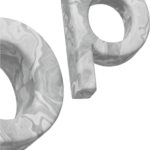

Set up your shop
Build my business plan

What do you need a business plan for?
19 December 2023
A business plan is an essential tool for any retailer looking to establish a new bricks and clicks shop, or anyone looking to start or develop their retail journey. From seeking new investments in your business to planning out your inventory and turnover, it all starts with your business plan.
In this article, we’ll explain to you what a business plan is for and provide you with a comprehensive guide on how to effectively use it to increase your chances of retail success.
The Role of a Business Plan
A business plan serves as a planning and forecasting document that provides you with a snapshot of your company as it stands and places some emphasis on what to consider to move you towards your goal.
A good business plan will serve as a roadmap, a guiding line for your entire retail venture. From current stock and inventory to marketing and growth strategies, customer profiles to competition, sales to cash flows, the business plan is a one-stop shop for key information related to your retail business.
Setting Clear Objectives
A business plan is used as a forecasting and financial planning tool. As such, you will need to set clear objectives for the growth and development of your retail enterprise. Remember to keep your objectives SMART: Specific, Measurable, Achievable, Relevant, and Time-bound.
Concretely, what does that mean? You could, for example, set yourself the goal of increasing in-store sales of impulse buy items by 15% within six months. This is Specific (impulse buys), Measurable (15% growth), Achievable and Relevant (only you know if this actually is an area for development) and Time-bound (6 months).
Of course, this is just one example. Perhaps you’d rather target a new market segment, increase sales amongst a specific demographic of potential customers, or improve turnover and decrease the time inventory spends in stock.
Market Research and Analysis
Setting clear objectives is great, but what if you aren’t sure what you should be investing in improving? That’s where market research comes in. This is a critical exercise that must be carried out in order to find your niche, understand the target market, get to terms with local (and online) competitors, and analyse and try to forecast changes in industry trends.
We’re never free from the possibility of a truly disruptive shift in industry trends. While you can’t plan for the completely unexpected, these kinds of disruptions are far from common place and never overnight. Carriages were replaced by cars and CDs have gone the way of the 8-track, but as a retailer, your company is at less inherent risk, as you won’t be fully invested in only a single product line. However, if you want to avoid the sunk cost of items sitting around unsold in your stockroom or having to be sold at a loss, forecasting, analysing, and keeping an eye on market trends is an absolute must.
That also goes for changes in your customer demographic as well. An aging local population might prove to be a challenge for someone selling primarily toys and games, so perhaps it’s time to aim for more adult-oriented tabletop games. Or perhaps it’s indicative of the next generation on the way, and you’ll find more potential in baby and toddler-oriented items. That’s why understanding and analysing the market is so important and should be something you write out in your business plan.
Defining Products and Services
Your business plan should also be used for defining the products and services that your company will be offering. With research to help inform you on what area of the market sector, what niche, is being underserved, you’ll have a clearer picture of your potential customers and can start aligning your products and services to their expectations.
When you write your business plan, flesh out the details. How will you reach these potential customers? What can you offer them that they won’t find elsewhere? What kind of products do they expect to find? Are there any services that you can offer that will help form a trusting relationship with your customer?
Let’s explore the game shop we discussed earlier. Let’s suppose you decide to cater to an older audience of tabletop customers… Perhaps you could offer your clients certain services such as game nights where they can try a game with friends on your premises, or perhaps a resale service where you buy back used single-playthrough games (like escape games) to resell at a discount.
Part of what your business plan is for is defining these services and trying to forecast how they will affect sales. Of course, you’ll get a clearer picture over time and you’ll be able to adjust your business plan accordingly.
Financial Projections and Budgeting
Because your business plan is going to be a repository for your sales numbers and financial projections, it plays an important role in helping you secure investments or business loans. An idea is only as good as the reality in which it exists. As a small business owner, it’s imperative that you believe in your idea, but financiers and investors rely on concrete evidence.
There’s a lot that goes into launching a retail venture; from finding the proper location to building out the interior and even web development if you decide to offer online sales… And whether you open a physical location, or run your company simply online, you’ll need to think about stocking up inventory. If you’re looking for an external injection of funds to get off the ground, you’ll need to provide sales projections and an itemised budget to demonstrably show that you’ll be able to repay the loan or provide a solid return on investment.
It’s all down to the details. Make sure you really dot your i’s and cross your t’s – provide in-depth upstream market research that supports your idea and really dig down on your financials to secure that financial injection you need, something that wouldn’t be possible without a sound and well-developed business plan.
Marketing and Sales Strategies
Your business plan should also include marketing and sales strategies. Explain how you are going to drive sales, especially during lulls in the sales season. For our toy shop, of course the Christmas season is going to be a major sales season. But you will have to decide and define how you will compete with big box stores or online retailers.
In this section, you’ll define what major levers you’ll prioritise as well as how much money you will need to budget for marketing. Even in the off season, setting aside a bit of a budget for in-store competitions may be a great way to improve visibility and word of mouth. With your market research in hand, it’s time to build your best plans.
Risk Management and Contingency Plans
Risk management is a crucial part of running a retail store. Loss prevention, mitigating issues such as theft or inventory shrinkage, is critically important for risk management. But even this won’t account for things like market downturns or shifting trends.
Take time in your business plan to write down some sound contingency plans in case of market shifts or unavoidable issues such as fires, flooding, IT and communications problems, or construction blocking access to your store front.
A contingency plan should identify specific risks, ways to minimise the risks, and actions to be taken in case such an issue occurs. This could include people to contact, insurance against specific risks, and potential communication to release to your customers. It’s also a good idea to make sure you leave yourself enough cushion in your budgeting to survive a week or more without sales.
Monitoring, Evaluation, and Adaptation
Your business plan is a guide for how you want your business to run. However, as good as your forecasting may be, it’s hard to plan for even 5 years, especially when you’re just starting up and don’t have historic data to use. For this reason, you shouldn’t treat your business plan as something set in stone.
Update it and make changes as necessary to ensure you have the best plans in place to succeed, and don’t hesitate to seek help from experts.
Ankorstart is Ankorstore’s free support programme that will get you in contact with experts who can help you set up your business plan and get your retail store from ideation to reality. Whether you opt for an online or physical store, or a bit of both, Ankorstart’s experts can help you make your dream a reality. Join the community of more than 65,000 retailers who have joined the Ankorstart programme.
FAQ
What is the most essential information to include in my business plan?
A business plan should include all of the information relevant to the running of your retail business. This means everything from marketing strategies to research, from target audience to products and services, and your finances: your break-even point, stock management, sales and projections, and ways to increase turnover. If it’s relevant, it belongs in your business plan.
How often should I revisit my business plan?
The market is always in fluctuation. Macro changes to the economy, shifting global trends, changes in your local demographic, and disruptive technologies can make forecasting the next five years feel like guesswork. For that reason, you should revisit your business plan at minimum annually. However, you shouldn’t make drastic changes based on only a few weeks of downturn. Don’t be too zealous and completely overhaul your business plan every month. Marketing and promotions may take some time to show any quantifiable upturns.
Is the formatting used for my business plan important?
This is going to depend on the purpose of your business plan. If it’s something that you are using for your own metrics and keeping yourself on track, there will be less need for following any formalities than if you are using it to secure new additional funding or investment. However, in both cases you should think about readability. You don’t want to waste time looking for some specific information lost in a wall of text. Use clearly identified sections and favour graphs when possible, using short, concise statements rather than long paragraphs.
Related posts "Build my business plan"

Financial projections and forecasting are incredibly important for your retail store. In order to assess the health of your retail venture, you need to be able to look ahead at future inflows and outflows of cash and reassess historic returns. We’ll teach you how in our article.

The executive summary or operational summary is essential for attracting funders. With the advice of Ankorstart’s experts, strengthen your business plan.

Before starting an e-commerce business, it is important to be well prepared. Here is a step-by-step guide to writing an effective business plan tailored to the specificities of retail e-commerce.

Everything you need to know about writing a successful business plan for a retail store.


